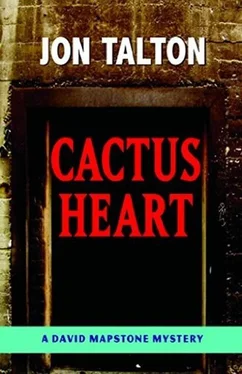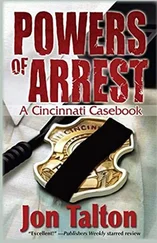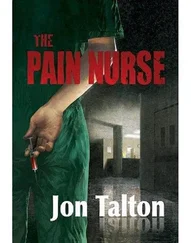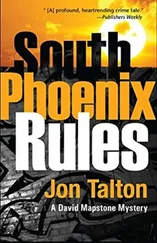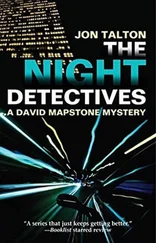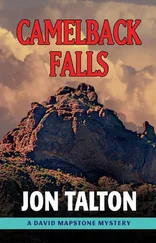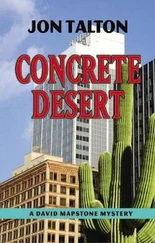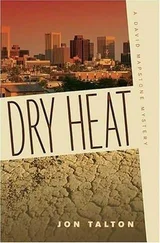“I’d like to talk to him.”
“What if he doesn’t want to talk to you, huh? Look around, you think cops are welcome in this ’hood? They only come when they bring trouble. Like that kid who was murdered over on Buckeye yesterday. Sounds like he never had a chance. The TV said he had a gun, but you know that’s bullshit. You cops carry guns to plant on the people you shoot.”
I let that go on by. My ears were still ringing from the shooting.
“And what kind of a cop has a ride like that?” He nodded toward the BMW.
“You probably don’t know that we recovered the remains of the Yarnell twins…”
“What? Do you think I’m stupid? I read it in the newspaper.” My charm was obviously working on him. “I thought that was solved. They caught the guy way back when. He was an Anglo.”
“He might not have done it. There’s new information. That’s why I was hoping…”
His eyes bore into me and the rain sprinkled on us. “You don’t know anything about my dad. You think you’re going find some dumb old Mexican. He’s a retired small-business man. He took the money he saved while he was young, while he was working for the Yarnells, and he started a lawn service. By the time he retired, he had more than a hundred men working for him.”
As he lectured me, I could see the glow of a television screen beyond the doorway, but it was impossible to see who was inside. Then someone was watching me, a little girl with luxurious black hair and a nose pressed against the screen.
“I learned all about the police as the arm of the dominant power establishment when I was a student at Princeton,” he went on, watching me closely. “Does it surprise you a homeboy went to the Ivy League?”
“No.”
“Bullshit! I come back here and there’s no work except in real estate, and there’s a cop on my doorstep. Class and race and power, man. If this house were in Paradise Valley, you wouldn’t dare come here. You’d be dealing with some lawyer.”
“I just want to ask Mr. Paz if…”
“Hey, Pablo!” I turned to see a low-rider Honda stopped on the street. Four heads with close-cropped haircuts were staring at me. “This guy giving you trouble?”
My stomach tightened. Suddenly this seemed like a really bad idea. The little girl kept watching me.
“Look. I’m not here to hassle you or your grandfather. I saw the bones of the two little boys. It’s all that’s left. Andrew and Woodrow. They were four years old. I’ve seen a photo of them in cowboy outfits. I bet they were like any kids that age. Then somebody took them. They were sealed into a wall, and they probably suffocated in there. I don’t care whether they were rich kids or poor kids, they didn’t need to die that way. And we’ve gone for fifty-eight years without knowing what really happened. I think your grandfather could help. I can’t imagine he wouldn’t want to try.”
Pablo’s mouth turned down. Almost involuntarily he looked back into the house, at the little girl, and in a voice of unbelievable tenderness, “Go back in now. Go be with Lito. I’ll be right there.” Then he cocked his head. “It’s okay,” he called out, and gave a meaty wave to the occupants of the Honda. “We’re glad you’re back in town,” they yelled and rolled off.
“At least consider it.” I held out my card, and after a long moment Pablo took it.
Pull a strand and it breaks. There was as much chance of talking to Luis Paz as there was that Phoenix would become a city of rain like Seattle. It put me in a rotten mood for the shooting board, which met all afternoon. I had been a bit player in the incident on Buckeye Road, but that didn’t prevent the usual savaging by internal affairs, an assistant county attorney and a board of senior officers. “Why didn’t you fire?” they kept demanding. “Why did you hesitate?” The kid seemed pretty dead without my assistance.
Back in the courthouse, I was arranging neat piles of work on the big counsel’s table that sat beside the white board when the phone rang. It was James Yarnell.
“We’re home free, Mapstone.”
“Oh, sorry I didn’t tell you about the suspect in Max’s homicide. I just assumed the other detectives…”
“I’m not talking about that. Didn’t you hear? Scottsdale PD made an arrest this morning.”
I sat in my chair, letting the creak echo off the high ceiling.
“It was this woman, she was obsessed with me,” he went on. “She was on the art scene in Santa Fe, and I thought she had a little talent. It turned into an affair. Bad judgment on my part. That was a year ago, and after we broke up she moved to Scottsdale. She would come by the gallery. Then she started getting nasty, making threats. But I thought she was harmless.”
I stopped him. “Are you telling me this woman has been arrested for taking the shot at us?”
“Yes, yes! Lisa showed up outside my house, screaming at me. The cops were watching me, of course, and they arrested her. They told me she had a pistol in her car, the same caliber as the one that was used on me. Right now they’re calling her a ‘person of interest,’ whatever that means. I guess they have to run tests.”
Why wasn’t I happy for him? Another neat bow was being tied around the case, and all my fears about a link to the kidnapping were just so much paranoia. So what if the same kind of doll that had been delivered to my office door was also found in Max Yarnell’s house, with the charming addition of bloody doll hands? Calm down, Mapstone. Get in the holiday spirit. So I told him it was great news. Then I was about to tell him that Jack Talbott couldn’t have been at the hacienda the night of the kidnapping, but he was in a hurry.
“Let’s catch up after the first of the year, Mapstone. I’ll call you.”
My next call was to Gretchen. I told her I had to work for the next few nights. Believe me, I didn’t want it that way. But the Yarnell kidnapping was still unsolved. In my mind, it was more unsolved than it had been when I fell into the freight elevator in the dark a month before.
I finally had to settle down to the hundred small disciplines that separate the historian from the cop. We live in a state of incomplete and contradictory knowledge. It’s what keeps historians arguing and publishing. That wasn’t much comfort now, because I lacked the scholar’s critical distance from this piece of history. But I would try. And if I were lucky, I would live with a little less uncertainty. I discussed my theories with no one.
I needed the comfort of research, informed by technique and imagination. I wanted evidence. I wanted contrary evidence even more. Reconstruction. What happened? Interpretation. Why? Pattern and bias. What was I missing? It was solitary work.
I mined archives scattered across the city: the state archives, the library at Arizona State University, the Arizona Room at the Phoenix Public Library, the state historical society, the Arizona Historical Foundation. I returned to the old files of the Phoenix Police, and added data from the county assessor and recorder. I spent half a day at the state vital statistics department. I tore apart ten boxes of court transcripts that had been boxed up longer than I had been alive. Dusty pages and decaying volumes. Each one said, “I was there”…“I have something to tell you.”
I sat in on the monthly breakfast held by some retired Phoenix cops at Bill Johnson’s Big Apple, and each one had an opinion about the case. Unfortunately, none had firsthand knowledge of it. I pored over maps and blueprints of the warehouse district, old plans from the city water department, and a survey of the area by the Salt River Project. At the Phoenix Police Museum, amid the display of a real police motorcycle and a mockup of the city jail in frontier times, the curator showed me Joe Fisher’s memoirs. He let me borrow a desk and I settled in to read it.
Читать дальше
